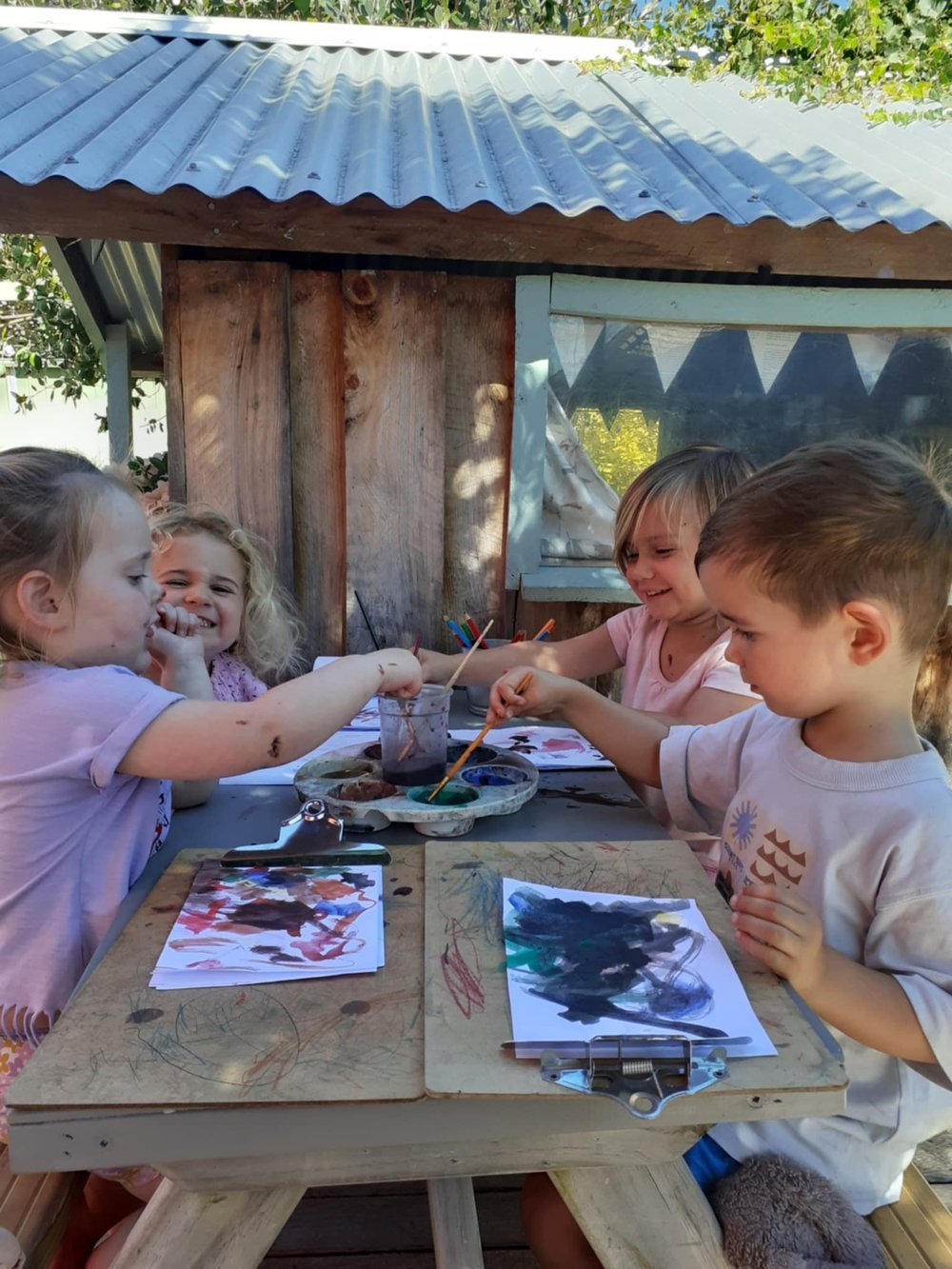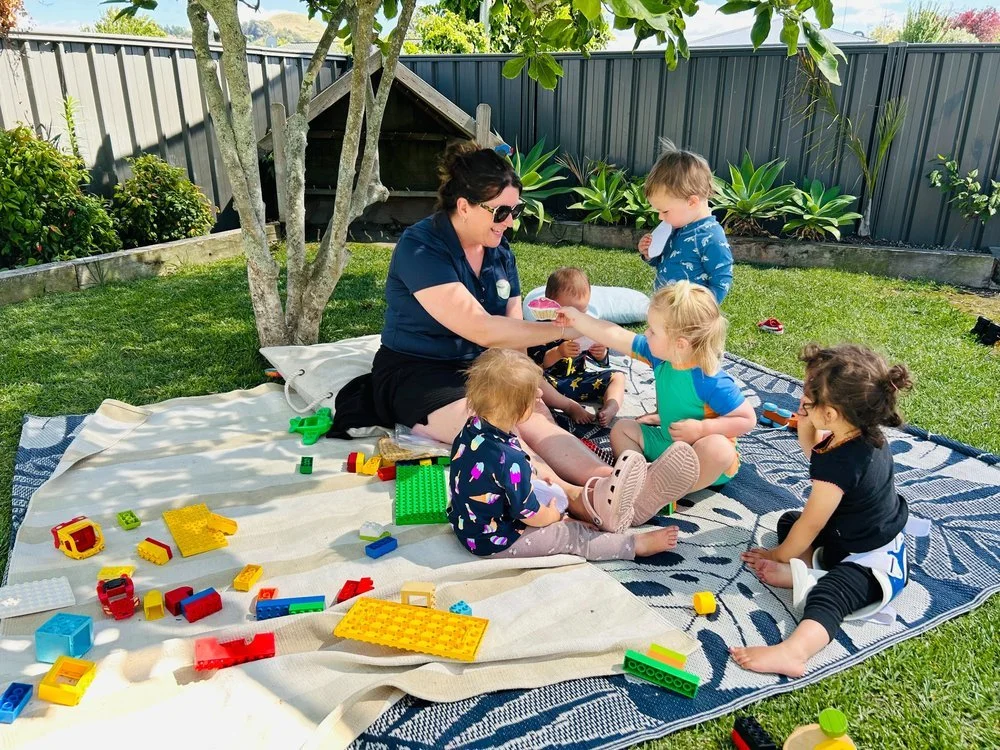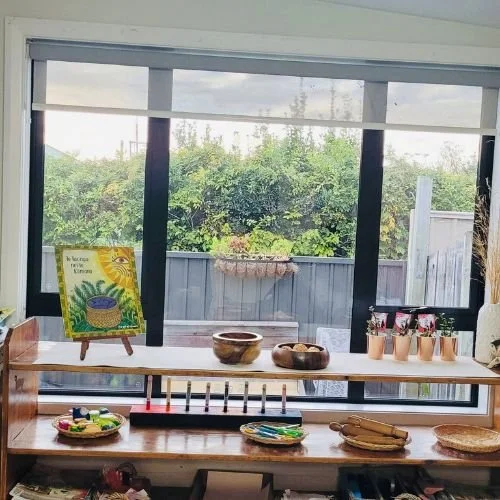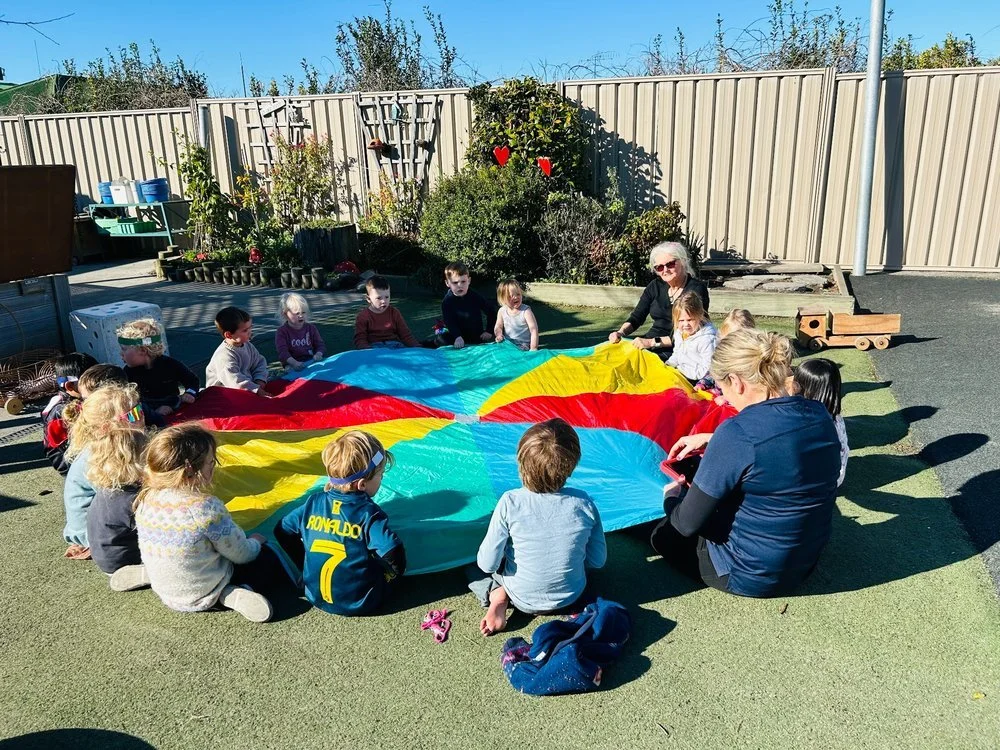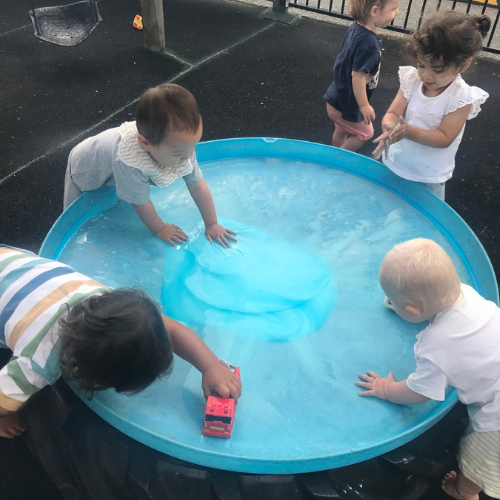Our Approach
Our Approach
Play, Love, Learn
Our Philosophy
At Happy Days, our philosophy is woven through every moment, every relationship, and every learning opportunity. It rests on three guiding pou:
Play | Learn | Love
We believe that learning happens through play that is rich, meaningful, and grounded in authentic connection.
We believe in the power of aroha - to give love, receive love, and show deep respect for one another.
And we believe that children thrive when they feel seen, safe, and supported to be their whole, wonderful selves.
Our kaiako are intentional in their teaching and genuine in their relationships.
Children are encouraged to explore, question, imagine and create all in their own unique way, supported by people who care deeply.
Our Vision
Let the uniqueness of the child guide our work
Ko te ahurei o te tamaiti arahia o tatou mahi.
Every child is unique and at Happy Days, that’s where our journey begins.
We are guided by the strengths, interests, and spirit of each child, walking alongside them as they play, learn, grow, and shine in their own time and way.
We also hold close this beautiful truth:
“The best education does not happen at a desk, but rather engaged in everyday living – hands on, exploring, in active relationship with life.”
Intentional Learning:
At Happy Days, every part of our environment is thoughtfully designed to feel safe, welcoming, and inspiring - a place where tamariki can explore, play, and grow.
We see children as co-researchers and co-constructors of their own learning. Our kaiako walk alongside them, offering guidance and support in ways that feel natural, authentic, and meaningful to each child.
We encourage child-led, play-based learning experiences where tamariki are empowered to make their own choices, observe, wonder, problem-solve, and follow their curiosity at their own pace.
Intentional interactions
Intentional teaching is rooted in relationship, in genuine, meaningful interactions that spark learning and expand thinking. These interactions can take many forms:
Questioning: Open-ended questions help draw out children's thoughts, deepen their curiosity, and build vocabulary and communication skills.
Imagining: Creativity is encouraged through play that has no set outcome, just space to explore, dream, and discover.
Scaffolding: Like the scaffolding around a building, this kind of support helps children gain confidence and independence. Kaiako gently guide tamariki through new challenges, stepping back as they grow stronger.
What is Intentional Teaching?
Intentional teaching is about teaching with heart and purpose. It starts with understanding each child's unique strengths, interests, and needs, and creating goals that evolve as they do.
This approach blends both planned and spontaneous learning opportunities. Whether sparked by a child’s question or a teacher’s planned activity, our kaiako stay open, present, and responsive, ready to extend learning in the moment through planned activities, or via child-initiated responses. It is the role of early childhood teachers to encourage children when these situations arise. This approach places early childhood teachers as active participants in the learning process.
Our Intentional practices
At the heart of intentional teaching is a shared sense of purpose one that includes our whānau. Families are invited to help shape learning goals, ensuring we’re working in partnership to grow the knowledge, skills and values that matter most.
Intentional teaching brings together three key elements:
Curriculum design
Meaningful interactions
Purposeful environments
Designing an Intentional Curriculum
We go beyond simply planning activities. Our curriculum is crafted to create meaningful moments and personalised learning, grounded in our philosophy and aligned with both Te Whāriki and the Early Years Learning Framework.
This means:
Planning activities that open the door to deeper experiences
Tailoring learning to each child’s priorities
Weaving in early literacy and numeracy naturally
Asking thoughtful questions to extend learning
Honouring the interests, voices and identities of our tamariki
Our curriculum is dynamic, adapting as children grow and change — just as it should.
ERO Report
We are pleased to share our confirmed ERO Evaluation Report for 2025. We are so happy with the results! The team work so hard to make Happy Days a great Early Childhood Centre for the children, parents and whānau. I am extremely proud of the team. ERO acknowledged that they could see and hear the aroha and care all the teachers put into each day, to make Happy Days a "home away from home" centre for your children to learn and grow in a safe and loving environment.
As you will see from the report, it is very brief, but they did give us verbal feedback as follows:
• Happy Days has made good progress on our Quality Improvement Actions since the last ERO visit.
• Children’s mana is recognised and fostered.
• Tuakana Teina evident (older children support younger children in their learning).
• Bicultural practices are strong.
• Teachers are calm and unhurried which aligns with their philosophy.
• Warm reciprocal relationships are evident and teachers are responsive to children’s needs.
• Children had great self-care skills.
• Children know routines well - their is predictability in the rituals and routines.
• Intentional teaching practices are highly evidence.
• Teachers use a range of teaching strategies, problem solving to support children’s learning and development.
• Teacher’s re-visit children’s ideas and interests to promote and recall.
• Strong collaborative professional relationships evidence.
• Adults purposefully and intentionally support and interact with children at their ages, stages and dispositions.
• Learning outcomes from Te Whāriki (our Early Childhood Curriculum) guide teacher’s practices.
• Teachers take the lead, engage and challenge children to progress their learning and development.
• Teachers are continually reflective in their actions.
• It was evident that there is intentional leadership to grow and enrich teachers at Happy Days.
• Intentionality is evident - teachers plan and use intentional teaching strategies in interactions with children.
• Resources clearly align whānau aspirations.
• There is a holistic approach to professional development (“PD”) attended and a wide range of PD attended.
• There is a strong focus on Compliance.
• Strategic planning in the recruitment process.
Happy Days’ Leadership:
• There is a strong focus on leadership.
• Leaders foster collaboration and improvement across the centre.
• Leaders actively seek parents and whānau contribution.
• Leadership is highly evident within centre.
• Leaders lead the centre, drive direction and have reflection in practice and processes.
• Leaders articulate well and leadership is shared.
• Leadership is highly evident in documentation.
• Leaders mentor and grow capability within the team.
• Leaders facilitation collaboration within the team and with the wider community.
ERO’s Quality Improvement Action - areas they have recommended we strengthen:
• Strengthening consistency in how we document – streamlined across the centre.
• Strengthening our documentation of mentoring meetings.
• Strengthening individual teacher’s Professional Growth Cycle (“PGC”) to document the effectiveness of their teaching and how it impacts on children’s learning progression over time.
Thanks for all your support and encouragement whānau. Without you, and entrusting us with what is the most important people in your life - your beautiful children.
“The potential of each child is infinite.
It is our joy to nurture it."
— Inspired by Happy Days philosophy

